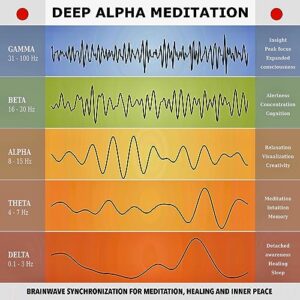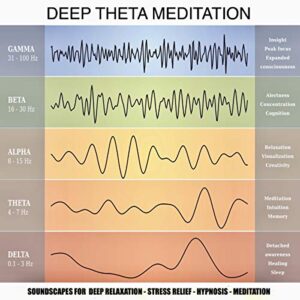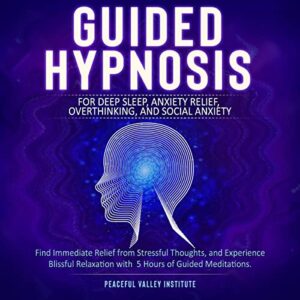In today’s fast-paced world, finding tranquility and achieving restful sleep can often seem like an elusive dream. Enter sleep meditation, a practice that has gained significant popularity in recent years for its potential to transform bedtime into a soothing, rejuvenating experience. In this article, we will explore the most effective sleep meditation techniques, delve into the benefits of meditating before slumber, and uncover the concept of meditative sleep.
What is the Most Effective Sleep Meditation?
When it comes to effective sleep meditation techniques, a variety of approaches can be tailored to suit individual preferences and needs. One approach that has garnered attention is “The Tibetan Yogas of Dream and Sleep” by Tenzin Wangyal Rinpoche[^1^]. This guidebook provides insights into ancient Tibetan practices that harness the power of dreams and sleep for self-discovery and spiritual growth. Those seeking a more audio-based experience can explore options like “Hypnosis 8-Hour Sleep Cycle with Brainwave Accelerator”[^2^], which employs brainwave technology to guide listeners into a deep and restorative sleep state.
How to Do a Sleep Meditation?
Engaging in a sleep meditation practice doesn’t require advanced skills – it’s all about creating a calming pre-sleep routine. Begin by finding a comfortable and quiet space. You can sit or lie down, whatever feels more relaxing for you. Close your eyes and take a few deep breaths to settle your mind. Now, gently focus on your breath, allowing your thoughts to drift away. For those interested in using auditory aids, consider exploring “Binaural Beats: A Theta Healing Soundscape for Sound Healing, Hypnosis, Lucid Dreaming & Restorative Sleep”[^3^]. Binaural beats are known for their ability to synchronize brainwaves and induce a meditative state, making them an excellent complement to your sleep meditation practice.
Is It Good to Meditate in Your Sleep?
Meditating in your sleep might sound paradoxical, but the concept holds promise. Meditative sleep involves entering a state of profound relaxation and self-awareness as you transition into slumber. This practice can enhance the quality of your sleep, reduce stress levels, and promote a deeper connection with your inner self. Calming audio tracks like “Calming Nature Sounds with Relaxing Music for Healing, Meditation and Sleeping”[^4^] can serve as a gentle backdrop, guiding you toward a serene mental space.
Meditative sleep is a state of mind-body harmony that bridges the gap between wakefulness and slumber. It’s a space where you can let go of the day’s worries and embrace tranquility. This practice involves acknowledging any thoughts that arise and gently guiding your focus back to your breath or a soothing mental image. As you become more skilled, meditative sleep can lead to lucid dreaming, where you are conscious of your dreams and can explore your subconscious landscapes.
In conclusion, sleep meditation offers a transformative journey into the realm of relaxation and self-discovery. Whether you choose to delve into the ancient wisdom of Tibetan practices, embrace brainwave-enhanced audio sessions, or simply focus on your breath, the path to restful nights and inner peace is within reach. Meditative sleep, with its potential to deepen your connection to yourself and improve sleep quality, is an exciting avenue to explore. So why not embark on this journey tonight? Sweet dreams await.
References:
- The Tibetan Yogas of Dream and Sleep – Link
- Hypnosis 8-Hour Sleep Cycle with Brainwave Accelerator – Link
- Binaural Beats: A Theta Healing Soundscape for Sound Healing, Hypnosis, Lucid Dreaming & Restorative Sleep – Link
- Calming Nature Sounds with Relaxing Music for Healing, Meditation, and Sleeping – Link
Remember, embarking on a sleep meditation journey can lead to profound benefits for your overall well-being. Incorporate these techniques into your nightly routine, and watch as your sleep transforms into a peaceful sanctuary of rejuvenation.








